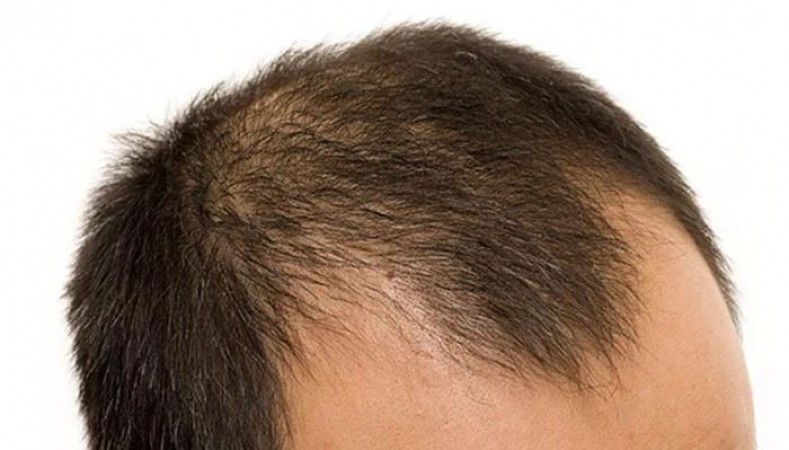
Hair loss is a common concern for people of all ages and (How Your Diet Affects Hair Loss) genders. While genetics, hormonal changes, and medical conditions can play a significant role in hair loss, there is increasing evidence to suggest that dietary habits can also impact the health of our hair. What we eat can influence the strength, thickness, and overall health of our hair follicles. In this article, we will explore five dietary mistakes that could potentially contribute to (How Your Diet Affects Hair Loss) hair loss.
Excessive Fast Food and Processed Foods
The modern diet is often characterized by its high consumption of fast food and processed foods, which are typically loaded with unhealthy fats, sugars, and artificial additives. These foods lack essential nutrients that promote hair health, such as vitamins, minerals, and antioxidants. Moreover, the excessive consumption of unhealthy fats can lead to inflammation throughout the body, including the scalp, which can negatively affect hair follicles and contribute to hair loss.
A study published in the Journal of Investigative Dermatology found a link between diets high in unhealthy fats and increased levels of dihydrotestosterone (DHT), a hormone known to play a role in hair loss. Therefore, individuals who regularly consume fast food and processed foods may be inadvertently exacerbating hair loss due to their dietary choices.
Insufficient Protein Intake
Protein is a fundamental building block of hair. Hair follicles are primarily composed of a protein called keratin, and a lack of adequate protein intake can result in weaker and more brittle hair. Inadequate protein intake can also disrupt the hair growth cycle, leading to increased shedding and slower regrowth.
A study published in the Journal of Dermatology Research and Therapy emphasized the importance of protein-rich diets in promoting hair health. Incorporating lean sources of protein such as eggs, lean meats, fish, legumes, and nuts can provide the necessary amino acids for strong and vibrant hair.
Low Iron Levels
Iron deficiency is a common nutritional deficiency worldwide and has been linked to hair loss. Iron plays a crucial role in the production of hemoglobin, which carries oxygen to cells, including hair follicles. When hair follicles receive insufficient oxygen, their growth and maintenance can be compromised.
Research published in the Journal of Korean Medical Science suggests a significant correlation between iron deficiency and hair loss. To address this, individuals should include iron-rich foods like red meat, poultry, fish, lentils, spinach, and fortified cereals in their diet. Combining iron-rich foods with vitamin C sources can enhance iron absorption, further promoting healthy hair.
Excessive Sugar Consumption
Diets high in sugar have been associated with various health issues, including obesity, diabetes, and inflammation. The negative impact of excess sugar intake extends to hair health as well. Elevated blood sugar levels can lead to a process called glycation, where sugar molecules attach to proteins in the body, forming harmful compounds that can damage cells, including those in hair follicles.
In a study published in the International Journal of Trichology, researchers found a link between high blood sugar levels and hair loss, particularly in individuals with androgenetic alopecia (pattern baldness). Reducing sugar consumption and opting for complex carbohydrates from whole grains, fruits, and vegetables can help mitigate the detrimental effects of excessive sugar intake on hair health.
Inadequate Vitamin and Mineral Intake
Vitamins and minerals play essential roles in maintaining overall health, and their deficiency can manifest in various ways, including hair loss. Some vitamins and minerals are particularly vital for hair health, such as vitamin D, vitamin E, zinc, and biotin.
Research published in the journal Dermatology Practical & Conceptual highlights the potential benefits of these nutrients in preventing hair loss. Vitamin D, for example, helps in the generation of new hair follicles, while vitamin E contributes to improved blood circulation in the scalp. Zinc is involved in the synthesis of keratin, the primary protein in hair, and biotin is a well-known supplement for promoting healthy hair, skin, and nails.
While hair loss can be influenced by a variety of factors, dietary choices (How Your Diet Affects Hair Loss) play a significant role in maintaining healthy hair. Avoiding excessive consumption of fast food and processed foods, ensuring adequate protein intake, addressing iron deficiency, moderating sugar consumption, and meeting the body's vitamin and mineral requirements are all steps that individuals can take to promote vibrant and robust hair. Remember that no single dietary change will produce instant results, as hair health is a gradual process. Consultation with a healthcare professional or registered dietitian can provide personalized guidance based on individual needs and health conditions. By making mindful dietary choices and nourishing our bodies from the inside out, we can contribute to maintaining the strength and vitality of our hair for years to come.
Fertilizers for Kharif Planting; States Urged to Counter Urea Diversions: Mandaviya
Health Benefits of Bhutta During Rainy Days: 8 Reasons to Enjoy Corn Daily